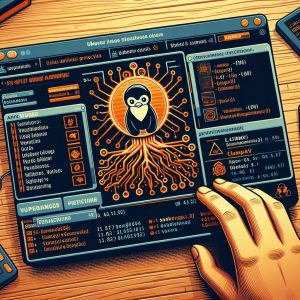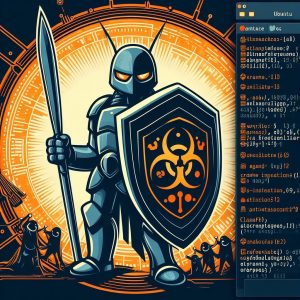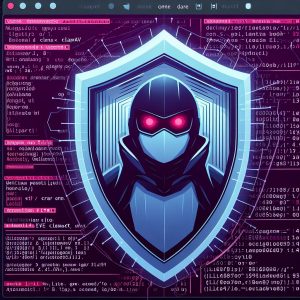I. Introduction
The Ubuntu operating system is based on Linux which maintains a reputation for security superiority, but viruses and malware have begun creeping into some Linux environments, including servers and desktops running Ubuntu. Hence suddenly Ubuntu may require similar protection currently associated with PCs.
Though Linux malware has a lower infection rate, modern Trojans and remote access tools increasingly take aim at Ubuntu as its proliferation grows for personal devices, software development and cloud operations. Without caution, valuable developer tools on Ubuntu risk hijacking. Cybercriminals probe for breaks in open-source defenses, exposing the human OS operator layer.
Some assume only Windows users need security software but Ubuntu merits antivirus tailored to its unique needs as well. Negligence of precautionary steps invites potentially crippling interruptions from adversaries. As organizations deploy Ubuntu at scale, devastating data breaches or infrastructure outages become possible if threats sporadically spawn. Staying aware of the evolving risk landscape informs smart Ubuntu security decisions for individuals and enterprises alike.

II. Understanding the Threat Landscape
Common assumptions regarding Ubuntu security require a reality check to avoid a false sense of safety. Mythbusting and evaluating new threats informs prudent self-defense.
Addressing Myths of Inherent Ubuntu Security
Conventional wisdom says Linux distributions like Ubuntu rarely suffer malware infections. But recent cyber campaigns dispel such complacency by actively targeting Linux servers including brute-force attacks on SSH logins, cryptocurrency miners implanted via scripting languages and systemd-level rootkits. OpenSSH backdoors, Linux.Encoder crypto-ransomware and SSHDoor botnets confirm Ubuntu servers operate on the cybercriminal radar.
Meanwhile on the Ubuntu desktop side, spyware strains like Hand of Thief and Crisis target bank account access via keylogging and form grabbing. Enterprise Ubuntu workstations face threats like ransomware-based file coders. Hence the barrier to threats on Ubuntu desktops and servers has eroded over the past decade.
Though Linux benefits from rapid open source patching for vulnerabilities and stronger permission controls limiting malware reach, judicious Ubuntu defense remains prudent as underestimating the evolving tactics still circulating may upend operations suddenly.
Emerging Infection Vectors
The Achilles’ heel for Ubuntu systems often stems from applications built atop Linux, rather than attacking the OS kernel itself. Vulnerabilities in PHP, Apache, OpenSSL and Node.js commonly offer initial intrusion vectors on Ubuntu servers. Cross-site scripting, remote command execution and SQL injection techniques provide piles of attack surface needling Ubuntu servers. Wily malware now bypasses even AppArmor security in Ubuntu when misconfigured. On desktops, web and email vectors including phishing downloads similarly plague Ubuntu users.
Hence rather than relying on base Ubuntu security alone, proactive analysis of the entire application stack running atop is necessary to lockdown and selectively sandbox risks using tools like containers. Ubuntu itself gives ground level hardening while supplemental methods tackle higher app layers generating attack paths. Antivirus solutions add another pillar for this crucial security-in-depth philosophy protecting strengths while offsetting weaknesses.
III. Available Antivirus Solutions
Many commercial antivirus platforms only support Windows, with some accommodating macOS too. But various corporate-oriented solutions specifically address Linux servers and Ubuntu for balanced effectiveness. Here are leading options:
Bitdefender GravityZone Business Security
GravityZone utilizes machine learning with memory introspection and anomaly analytics for detecting subtle Linux threats including ransomware, trojans, backdoors, crypto-miners and more without needing constant signature updates. GravityZone also sandboxes suspicious files in a secured cloud environment to efficiently test for advanced threats through deception tactics. For servers and VMs, GravityZone supplies out-of-the-box protection for Ubuntu and Debian with automated policies to enforce compliance.
Key Features
- Signatures, heuristics and behavioral analysis
- Integrated firewall, web advisories and vulnerability scanner
- Full scans and real-time memory monitoring
- Hypervisor integration securing VMs
Avast Antivirus for Linux
Avast applies decades of endpoint protection experience to the Linux environment for identifying threats that bypass native OS shielding. Partnered with IBM and Red Hat, Avast looks for anomalies around suspicious processes, unauthorized changes to system files and network traffic indicative of C2 communication. It defends various Linux distributions without compatibility issues or performance side effects.
Key Features
- Hardened web shield guarding against malicious sites
- Script scanning for Python, Bash, PHP malware
- Secured connections protocol
- Firewall and intrusion detection
ClamAV Open-Source Anti-Virus
ClamAV utilizes signatures and heuristics to detect trojans, bots, viruses and worms specifically targeting Linux. As an open source platform maintained by Cisco Talos, ClamAV signatures stay current with community support. High throughput on multi-core servers makes ClamAV suitable for large Ubuntu deployments across networks.
Key Features
- Detections for over 1 million malware variants
- Scheduled background scanning
- Automatic signature updating
- Email gateway integration
- Lightweight performance footprint
IV. Installation and Usage
Installing antivirus protection on Ubuntu leverages the APT software management system to seamlessly add security layers:
Prerequisites
Begin by updating packages on Ubuntu:
Copy code
sudo apt updateNext install ClamAV antivirus engine:
Copy code
sudo apt install clamavUsage
Check ClamAV version:
Copy code
clamscan -VRun virus scan on entire filesystem:
Copy code
sudo clamscan -r /Individual folders can also be scanned:
Copy code
clamscan /homeReview scan logs for detections:
Copy code
cat /var/log/clamav/freshclam.logScheduling
Automate recurring scans with cron jobs:
Copy code
# m h dom mon dow command
0 0,12 * * * clamscan --recursive --infected --remove /This performs a complete system scan twice daily removing threats. Additional usage options exist to only scan new files, create exclusions, set file size limits and optimize scanning across multiple cores and servers. Integrations with Redis and Docker secure containers. Mail gateway plugins expand scope stopping threats arriving via email. Together this fortifies Ubuntu environments comprehensively.

V. Recommendations and Best Practices
Securing personal and enterprise Ubuntu landscape requires holistic diligence with antivirus protection acting as an integral component.
Home Users
For basic Ubuntu desktop security:
- Maintain device patches up to date always
- Restrict installation of outside applications
- Review browser extensions access permissions
- Backup important data offline regularly
- Disable unwanted services to minimize exposure
- Enable firewall to filter suspicious traffic
Organizations
Business security teams supporting Ubuntu users, servers and cloud instances should:
- Standardize servers on Long Term Support Ubuntu builds only
- Integrate UFC vulnerability scanning
- Limit users permissions with least privilege
- Automate security updates streamlined to validate app compatibility
- Support Ubuntu Pro for security compliance features
- Strengthen SSH key-based authentication for remote access
- Install centralized antivirus management console to enforce policies
Carefully tailored precautions sustain trusted computing across cloud vantage points as threats mount against Ubuntu specifically.
VI. Conclusion
Despite assumptions, Ubuntu desktops and servers do face intensifying malware and virus dilemmas as adversaries purposefully exploit blind spots. Ignoring these risks jeopardizes stability. While Ubuntu itself promotes baseline hardening, applications layered above remain vulnerable awaiting additional security reinforcement. By combining intrinsic Linux security with robust antivirus suited specifically to Ubuntu’s technical composition plus sound user practices, both individuals and organizations can reap protection on par with commercial platforms while benefiting from Ubuntu’s speed and flexibility advantages. Antivirus fills a clear gap that should not be overlooked on Ubuntu because eventually infections numbers will continue rising to incentivize targeting. Staying vigilant and proactive means Ubuntu persists as a secure platform for computing duties across endpoints.
